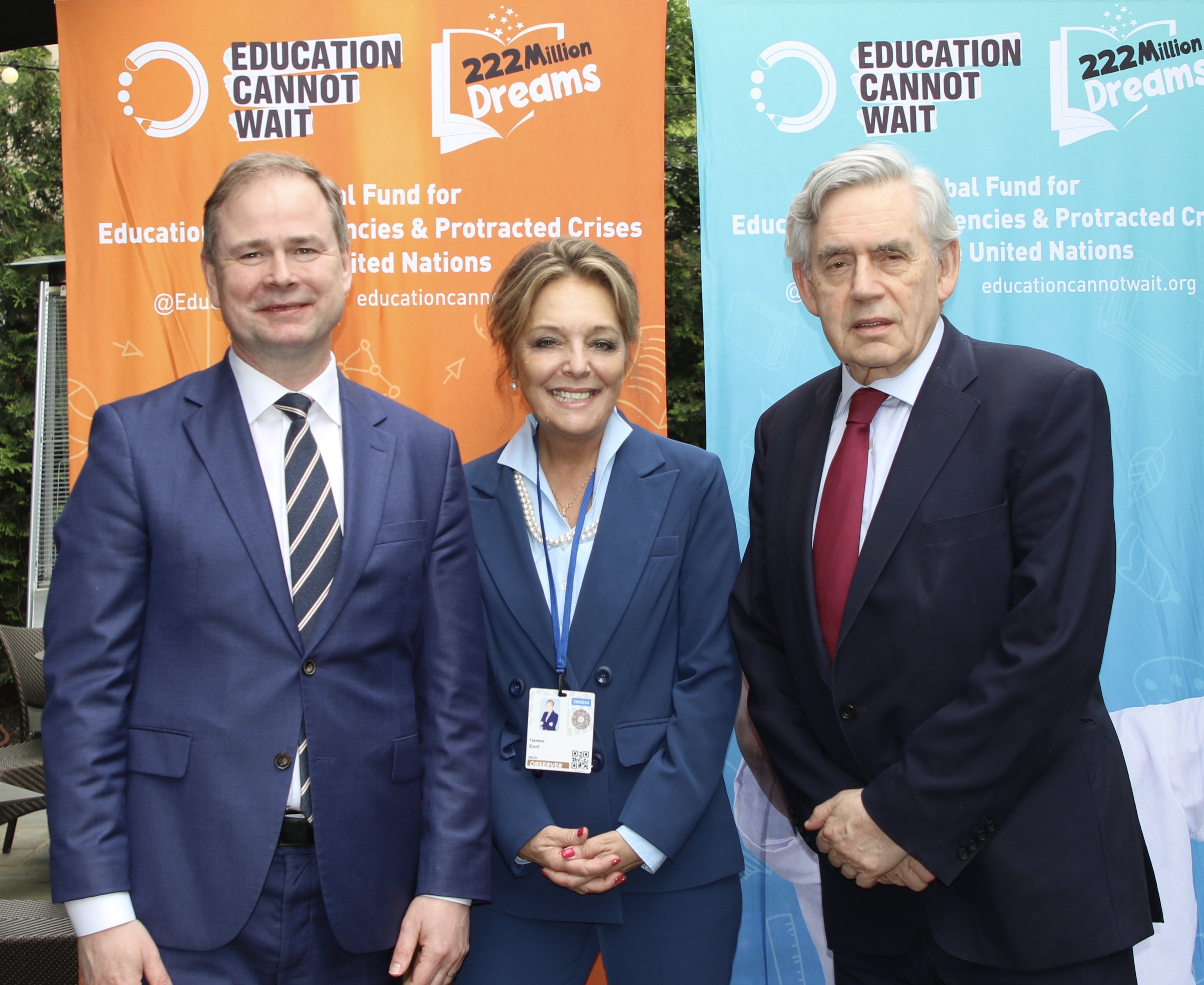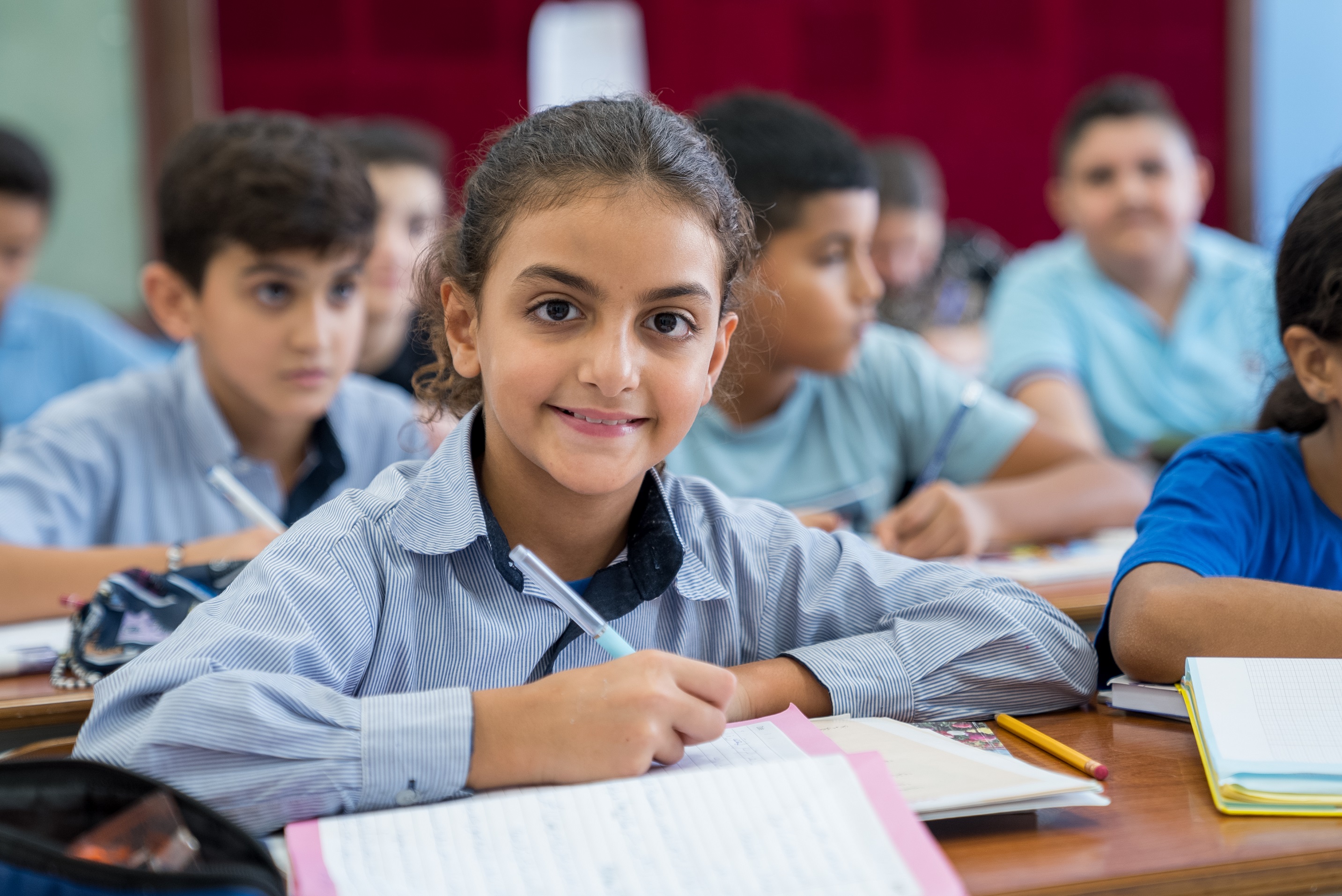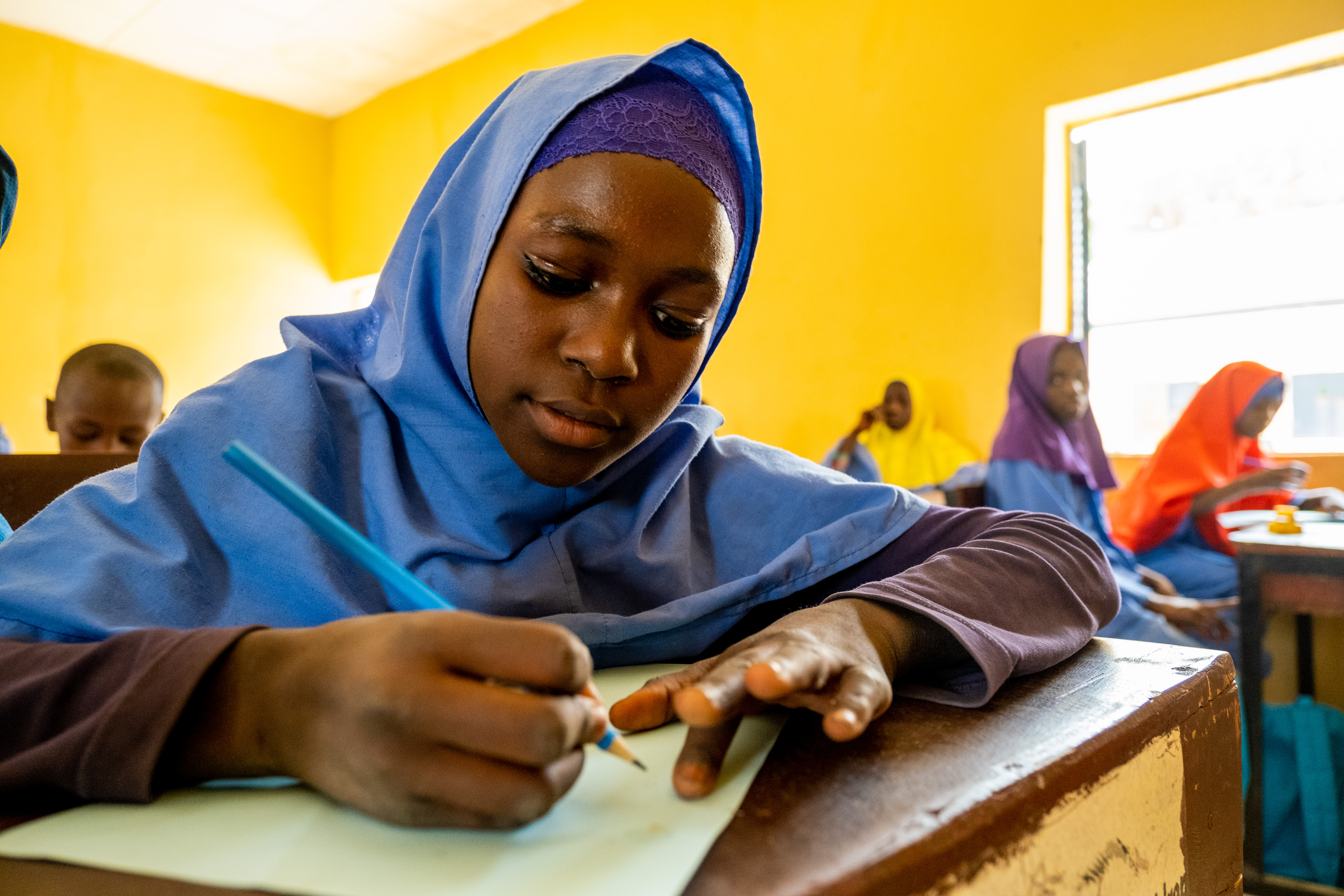Putting Learning First
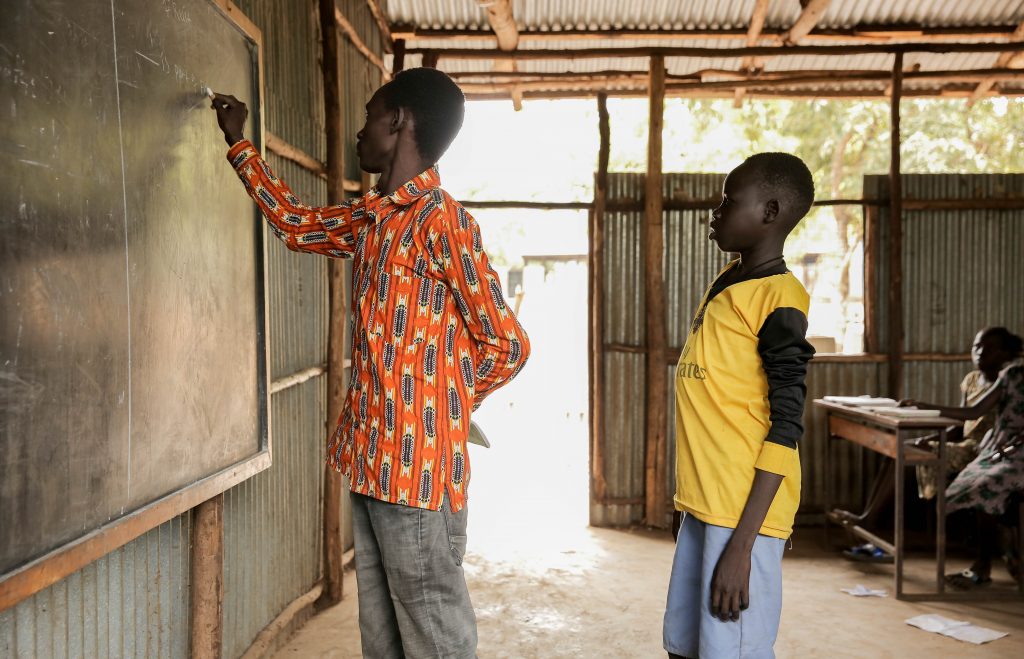
Education Cannot Wait and Porticus announce new partnership focused on measuring holistic learning outcomes for children and youth caught in protracted crises and emergencies
To improve learning outcomes for girls and boys caught in emergencies and protracted crises, Education Cannot Wait (ECW) is now partnering with the global philanthropic organization Porticus to develop, test and document fit-for-purpose solutions towards measuring the learning of children in crises-affected countries.
The pilot programme will be implemented in three countries between 2020 and 2022, as part of ECW’s Acceleration Facility. Bangladesh and Ethiopia are shortlisted, and a third country is in the process of being selected.
“There is a growing global movement to address the pressing needs of the 75 million children and youth caught in crises who do not have consistent access to a quality education. This partnership looks beyond getting children back in school, focusing on learning, child development and well-being. This includes the measurement of progress in academic learning, but equally gives attention to psycho-social, as well as social and emotional domains of learning and development. With this focus on measurement we can better understand whether and how children being exposed to multiple risks and adversities can develop the academic, social and emotional skills and competencies needed to achieve their full potential. The results of measurement can inform concrete program design, as well as policy,” said Gerhard Pulfer, Porticus representative for Education in Displacement.
Porticus’ goal in the field of Education in Emergencies is to “to promote a transition towards holistic, quality education for displaced learners and host communities.” According to Pulfer, Porticus seeks education systems for displaced children that take responsibility for learning outcomes, and that encompass both academic and social and emotional learning.
Holistic Approaches
Learning is different and vastly more complex for children and youth caught in crises and emergencies, including armed conflict, forced displacement and climate-change induced disasters. Stress, trauma, fear and anxiety make it hard for them to concentrate in school and learn. Of greater concern, too many girls and boys are simply left behind and excluded from the hope, opportunity and protection that a quality learning environment provides.
To address these challenges, ECW supports Multi-Year Resilience Programmes (MYRPs) that use a ‘whole-of-child’ approach to deliver quality education to children and youth affected by emergencies and protracted crises. These MYRPs focus on increasing access, teaching capacity, conducive school environments, more relevant curricula, tailored learning material, physical and emotional safety, as well as other aspects related to school feeding, and water and sanitation in schools.
Together with its partners – including host governments, United Nations agencies, public and private donors, civil society organizations and non-profits – ECW has launched MYRPs in 10 crisis-affected countries to date and plans to expand its support to a total 25 countries by 2021.
The new partnership between Porticus and ECW will measure the effect of these initiatives and provide a better understanding of what is working and is not working for children caught in emergencies and protracted crises to learn.
To do so, the partnership will take a holistic approach to measure learning outcomes, looking beyond academic achievements in literacy and numeracy to also include aspects of social-emotional learning. The social-emotional aspect is often overlooked in stable settings and requires specific attention for children affected by conflict. These skills include self-awareness, emotional regulation and respect for others, as well as interpersonal skills such as listening and conflict resolution. They also include skills such as critical and creative thinking, goal setting, study skills, teamwork and time management.
“Every child and young person have a right and need to enjoy an education that is holistic and addresses the full spectrum of developmental needs. The fact that they are caught in war zones, forced displacement or natural disasters does not remove their right to a quality education. On the contrary, a quality education is the only hope and viable solution left,” said Yasmine Sherif, Director of Education Cannot Wait. “As we supercharge ideas to create solutions as part of the UN’s Decade of Action, we must improve our evidence base and adjust approaches accordingly. This is part of our global promise to leave no one behind, and to ensure not just universal and equitable access to an education, but also universal and equitable access to a quality education.”
Partnerships for the Future
Porticus and ECW will work in close collaboration with in-country partners as well as global actors to ensure broad exposure, inclusive feedback and close collaboration as the partnership is implemented. Lessons learned through the partnership will be shared across a broad group of relevant stakeholders.
To kickstart the partnership, Porticus is granting EUR1 million (approximately US$1.1 million) to ECW. ECW will co-fund this valuable partnership with a US$500,000 investment.
As the partnership develops, both Porticus and ECW intend to broaden and grow the collaboration, to mainstream and accelerate best practices and help ensure children and youth caught in crises benefit from improved learning outcomes.
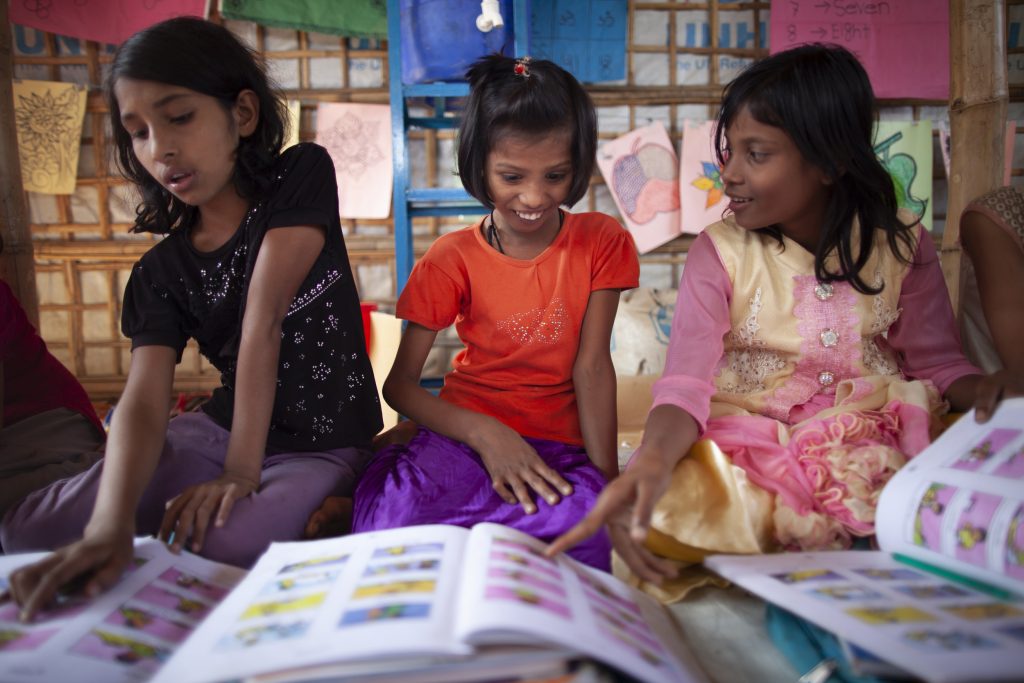
Bangladesh, where ECW supports a multi-year resilience programme for Rohingya refugees and host communities, is also targeted as part for the partnership. Photo UNICEF.
For Press Inquiries:
Anouk Desgroseilliers:
adesgroseilliers@un-ecw.org
+1-917-640-6820
Kent Page:
kpage@unicef.org
+1-917-302-1735

